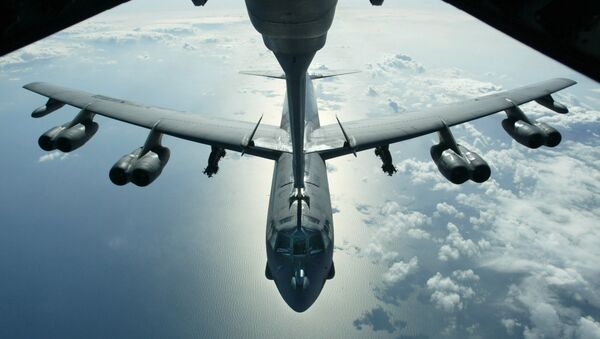Sputnik: What has been China's reaction to the STRATCOM Commander's statement so far, has there been a reaction?
Andrew Leung: Well the first reaction is not just specifically to this; look, the United States recently released two game-changing strategy papers. The first one is the National Security Strategy, naming Russia and China as [America's] main rival, if not enemy, as revisionist powers challenging the US-led world order. The other one is the National Defense Strategy, [which puts] a lot of emphasis on nuclear weapons, their legality and even suggesting the US should develop militarized nuclear weapons to respond to the so-called threat from Russia and China. So this latest thing from STRATCOM is nothing new actually, because he's merely talking about a credible, survivable second strike; this has been [a] reality [since] after the Second World War, because Russia is a nuclear power and so is China, and during the period of the Cold War all countries developed nuclear deterrents, capabilities leading to so-called mutual assured destruction.
READ MORE: US Reportedly Expands Missile Strategy – Here are the Alleged Targets
Mutual assured destruction means, whichever country dares to strike first, the other would have the capability to strike back, making sure both countries would perish. I think that this has been going on for a long, long time, so what he has been saying is that basically, Russia and China won't be able to find its submarines even if Russia or China prepare to mount a first strike. Well, this is nothing new, but of course, what is new is a kind of renewed Cold War, a kind of mentality where it seems that the only toolbox in international relations, international rivalry or competition is increased military cohesion.
READ MORE: Possible Deployment of Russia's Su-57 in Syria 'a Message' to US – Analyst
But the hegemony is gone and the world is multipolar, mutually dependent and mutually connected. One's national power and national influence rest on a lot of things, including the military, but also economic power, soft power, and the ability to solve problems for the entire world, earning a lot of respect with one's allies and with most of the world. So I think in a world which is connected by the internet, which eliminates geography and [where] connectivity is instantaneous, no matter what products [are in] most of the countries, even if you take any product that is not made in China these days you're bound to find there's input in it contributed by China, and also China relies on the global network; that applies to other countries as well. What is worrying is that this paradigm, this old mindset, firstly is it's a zero-sum game and secondly, it's going back to the so-called Pax Americana, the American hegemony, America First kind of mentality, which nowadays does not work anymore.
Sputnik: Are we seeing a shift in China's military strategy? You've mentioned that this is not the first step toward this increased military aggression or stance by the US, but we also had the military posture which talked about Russia and China as major threats to the US. Has China changed its military strategy, has it pushed to upgrade and further develop military capabilities in light of this new position of the US?
The views and opinions expressed in this article do not necessarily reflect those of Sputnik.



